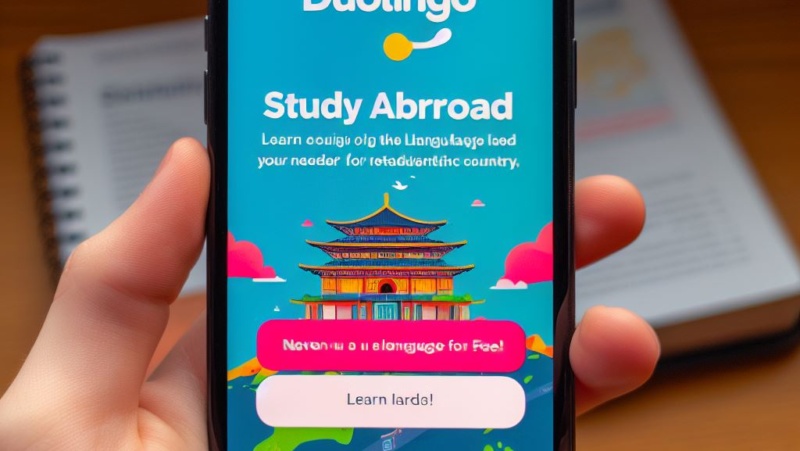Studying abroad can be life-changing. But at the same time, it is a costly affair. Studying overseas can incur significant expenses due to various factors. Most significantly, international students often face higher tuition fees compared to local students. Living costs, such as accommodation, food, transportation, and healthcare, can also be elevated in certain countries or cities. Travel expenditures, including airfare and visa fees, contribute to the overall financial burden. Exchange rates can impact expenses, as a strong currency in the host country can make education and living cost more costly. Health insurance coverage is often mandatory for international students, adding to the financial obligations. Visa and immigration expenses, like application fees and health surcharges, are also common. Additional educational expenditures, such as study materials and textbooks, further increase the overall cost. Thus, it becomes essential for students to conduct thorough research, plan ahead, and explore all opportunities to save money and manage their finances better while studying abroad.
Top 7 Tips How Can You Save Money While Studying Abroad
Without further ado, let’s delve into the ways to save money while studying abroad. Just for clarity, we are not including any pre-departure tips and assistance suggestions, but only ways in which students can manage their finances better to reduce the financial burden while studying abroad.
- Scholarships- Besides pre-departure scholarships, there are numerous scholarship opportunities available for students while they are enrolled in the program. Scholarships can help students save money while studying abroad in several ways. They can cover tuition fees, provide allowances for living expenses, support travel costs, offer health insurance coverage, and assist with miscellaneous expenses. By securing scholarships, students can alleviate financial burdens, focus on their studies, and fully embrace their international educational experience. Actively seeking scholarship opportunities and following application processes is crucial for students to take advantage of these financial benefits.
- Tuition fee waivers- Tuition fee waivers help students save money while studying abroad by reducing or eliminating tuition expenses. They provide financial relief, increase affordability, and offer budget flexibility. Tuition fee waivers make higher education opportunities more accessible and allow students to allocate funds to other essential expenses. By exploring and applying for these waivers through scholarships or institutional programs, students can maximise their cost savings while pursuing their education abroad.
Also Read:
Study in USA in 2024: A Comprehensive Guide
Study in UK in 2024: A Comprehensive Guide
- Assistantships- Usually in study abroad programs, students can apply for graduate, research, and teaching assistantships. These assistantships provide financial support to students and offer a stipend or salary to cover living expenses and often include a tuition waiver. Assistantships also provide valuable professional development opportunities, networking connections, and mentorship. By reducing the need for additional part-time work, students can focus more on their studies and enhance their academic performance. Assistantships enhance resumes, increasing future job prospects and potential earnings. Actively exploring and applying for these opportunities is crucial for students to benefit from the financial advantages and valuable experiences they offer.
- On-campus and part-time work, and internships- On-campus jobs, internships, and part-time work help students save money while studying abroad. They provide income to cover living expenses and reduce reliance on student loans. These opportunities also facilitate skill development, networking, and professional connections, increasing future job prospects. Enhancing your network can not only lead to job opportunities, but also get you shining recommendations, or mentorship, all of which can have long-term financial benefits. What’s more, balancing work and study enhances time management skills and cultural immersion. Actively seeking these opportunities allows students to earn income, gain valuable experience, and enhance their overall study abroad experience.
- Accommodation- To save money on accommodation while studying abroad, students can research and compare options, consider off-campus housing with roommates, explore short-term rentals, negotiate rent prices, look for budget accommodations, utilise inclusive utilities and amenities, seek housing grants or assistance, plan ahead, and explore alternative options. These strategies help students reduce expenses and make their study abroad experience more affordable.
- Online Deals, Student Discounts, and More- To save money while studying abroad, students can utilise online shopping, cashback and rewards programs, coupon websites and apps, student discounts, local deals and offers, group buying and sharing, attend free or low-cost events, obtain student travel cards, shop from online marketplaces and secondhand platforms, and enrol in local loyalty programs. These strategies help students take advantage of discounts, promotions, and exclusive offers to maximise savings while studying abroad.
- Plan ahead- Planning ahead is key for students studying abroad to save money. By booking early, researching budget-friendly options, and creating a detailed budget, students can minimise expenses. Applying for scholarships in advance and packing essential items from home can also help cut costs. Researching local transportation, planning meals, and taking advantage of student discounts further contribute to savings. Understanding health insurance coverage and exchange rates is important to avoid unexpected expenses. By proactively planning and considering various cost-saving strategies, students can maximise their financial resources while studying abroad.

Studying abroad may come with its financial challenges, but with proper planning and utilising available resources, it can be a worthwhile investment. By securing scholarships, tuition fee waivers, and assistantships, students can significantly reduce their educational expenses. On-campus jobs, internships, and part-time work provide additional income while offering valuable experience. Careful consideration of accommodation options and taking advantage of online deals and student discounts can lead to significant savings. Planning ahead and budgeting wisely are essential to managing finances effectively while studying abroad. By combining these strategies and being proactive in seeking opportunities to save money, students can make studying abroad a rewarding and financially feasible experience. It is an investment in personal growth, cultural exchange, and future career prospects, making it a valuable endeavour worth pursuing.
EdElevate’s expert guidance
Want to get started on your journey to your favourite university?
Our expert counsellors at EdElevate will guide you and help you throughout your application process with our unique offering of customised admission mentoring based on your interests, with coverage of the best colleges in every discipline. Right from choosing the best study abroad option for you to mentor you, to building a strong profile, we offer a variety of services to assist students in realising their dream of study abroad.
Apart from offering mentorship to students, we provide assistance in crucial admission processes including shortlisting universities based on the student’s unique profile and area of interest, essay ideation and brainstorming, essay review, reference letter and resume reviews, interview preparation sessions, and more.
With all of these advantages, EdElevate is the greatest place for you to join and work toward your dream of studying abroad and establishing a successful profession.
Attend a Discovery session at EdElevate today to chart out your road to success!




